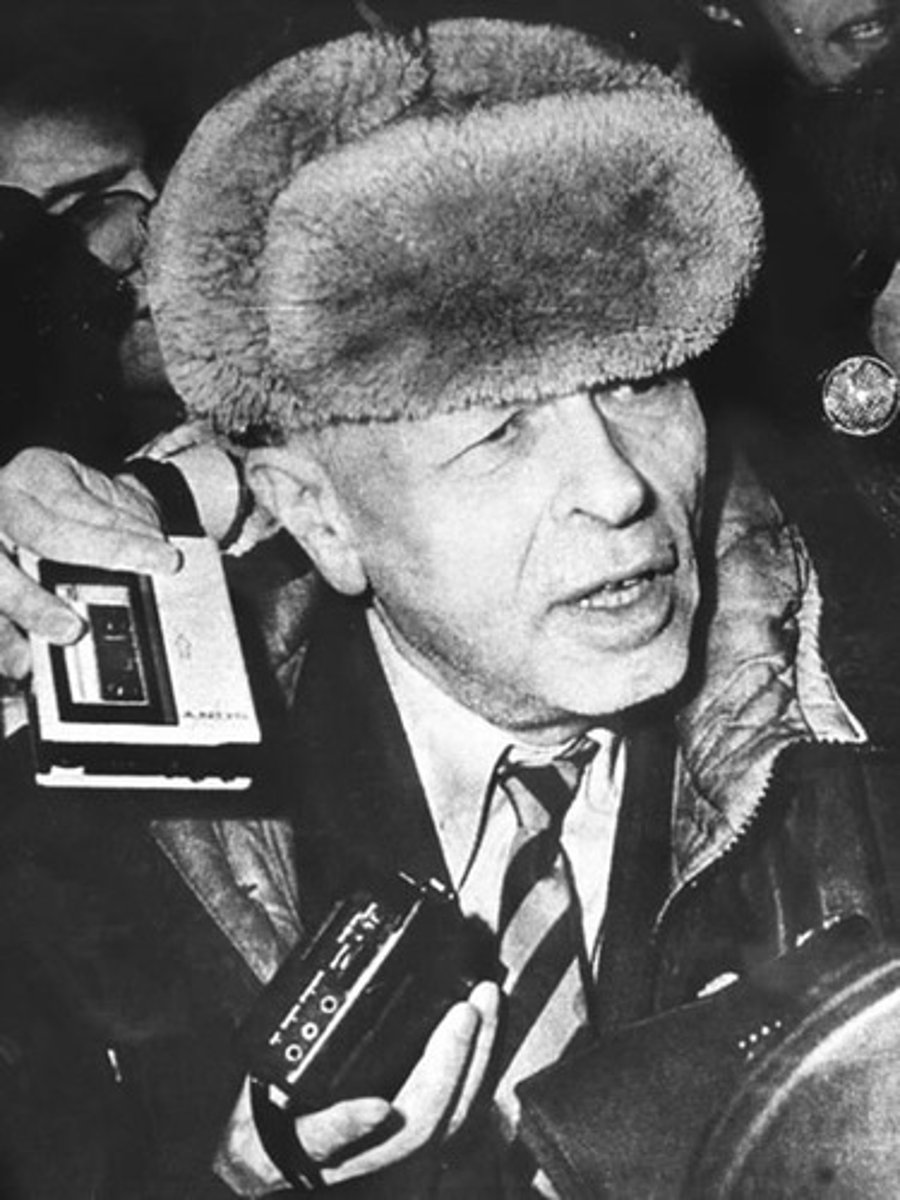FALL OF USSR
1/15
There's no tags or description
Looks like no tags are added yet.
Name | Mastery | Learn | Test | Matching | Spaced |
|---|
No study sessions yet.
16 Terms
Fall of the Berlin Wall
The removal of the wall that separated East and West Germany in 1989. Symbolized the end of the Cold War.
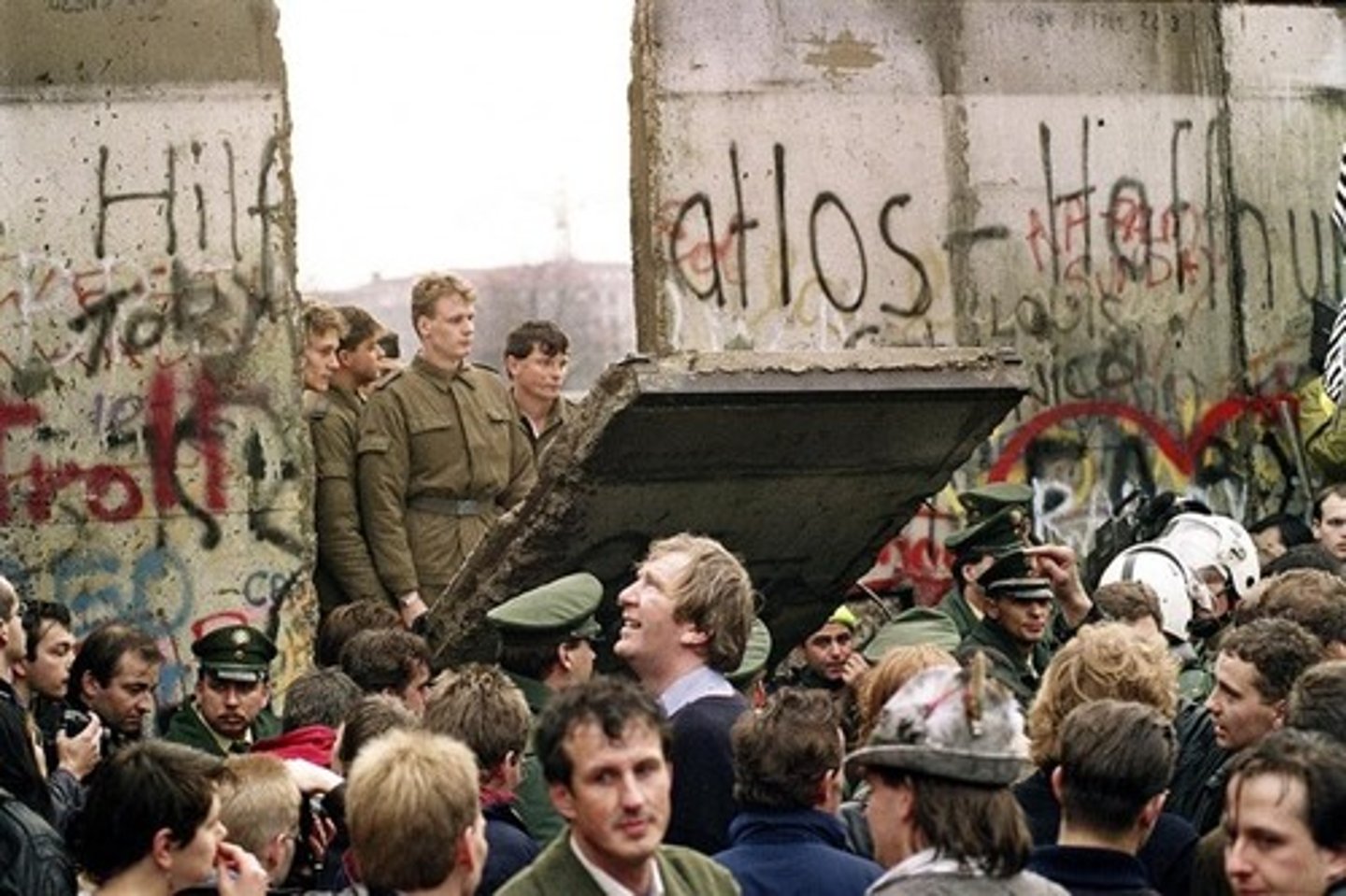
Mikhail Gorbachev
Head of the Soviet Union from 1985 to 1991. His liberalization effort improved relations with the West, but he lost power after his reforms led to the collapse of Communist governments in eastern Europe.
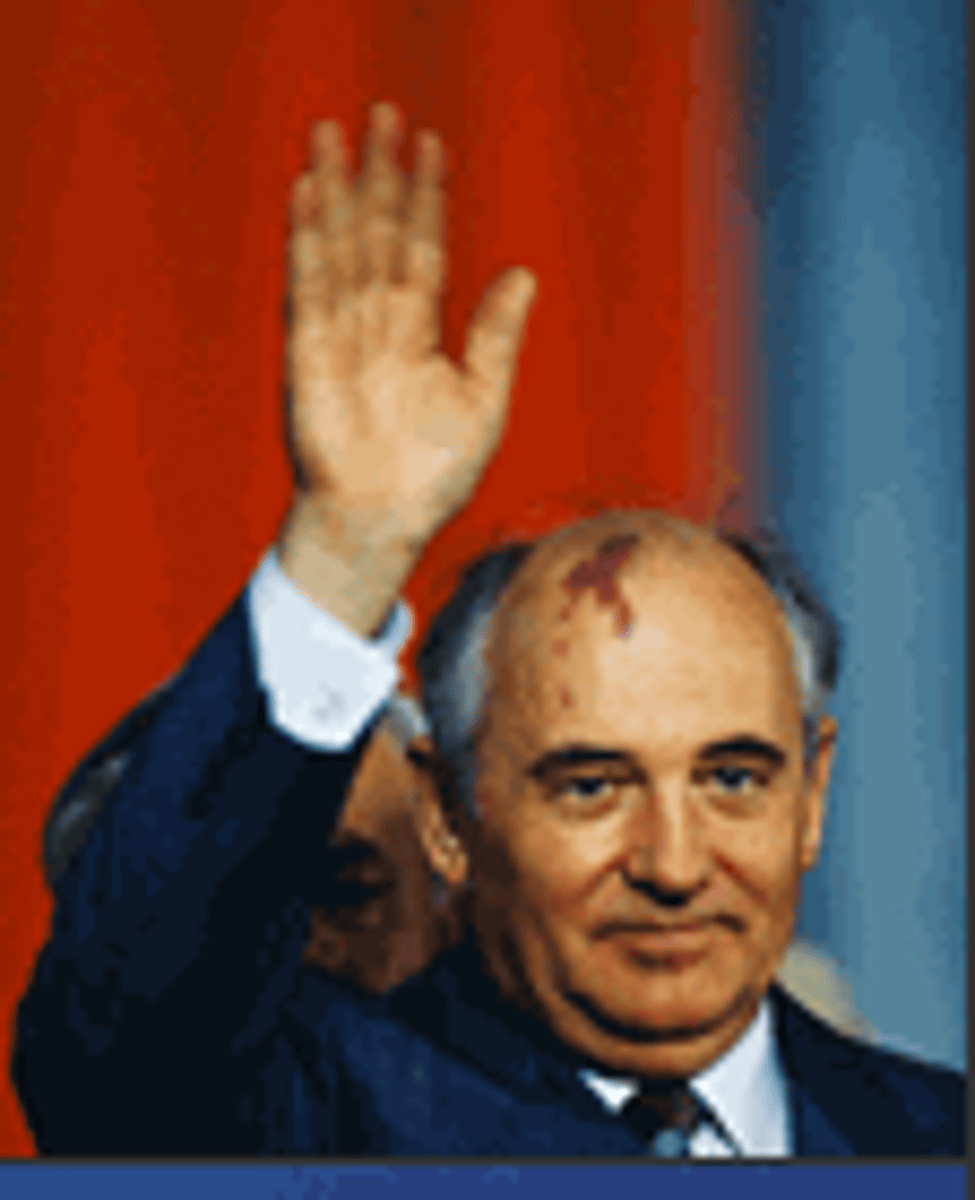
Glasnost
a policy of the Soviet government allowing open, uncensored discussion of social problems
Perestroika
A policy initiated by Mikhail Gorbachev that involved restructuring of the social and economic status quo in communist Russia towards a market based economy and society
Solidarity
Polish trade union created in 1980 to protest working conditions and political repression. It began the nationalist opposition to communist rule that led in 1989 to the fall of communism in eastern Europe.
Vaclav Havel
Czech dramatist and statesman whose plays opposed totalitarianism and who served as president of Czechoslovakia from 1989 to 1992 and president of the Czech Republic since 1993 (born in 1936)
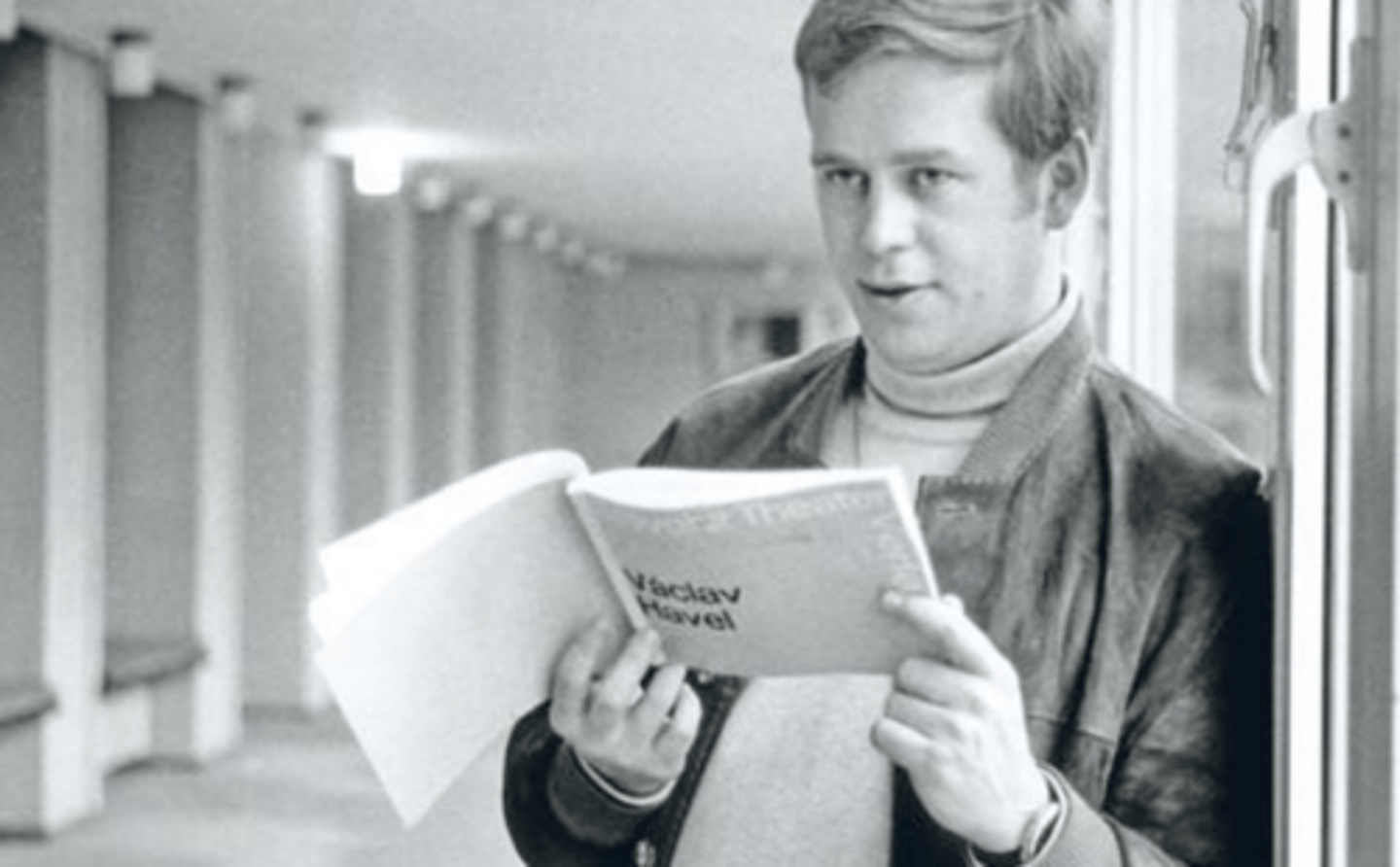
Brezhnev Doctrine
A policy started by Leonid Brezhnev, which asserted that Soviet Union and its allies had the right to intervene in any socialist country to maintain communist control
Gdansk Agreement
This occurred in 1980 in Gdansk after 16,000 workers in the Lenin Shipyards laid down their tools and occupied the plant. The Soviet government capitulated to their demands and allowed the formation of Solidarity, an independent trade union.
Helsinki Accords
Political and human rights agreement signed in Helsinki, Finland in 1975 by the Soviet Union and western European countries. The Soviet Union agreed to honor human rights within its borders.
Erich Honecker
Hardliner East German leader against whose regime began the demonstrations that ended in the fall of the Berlin Wall
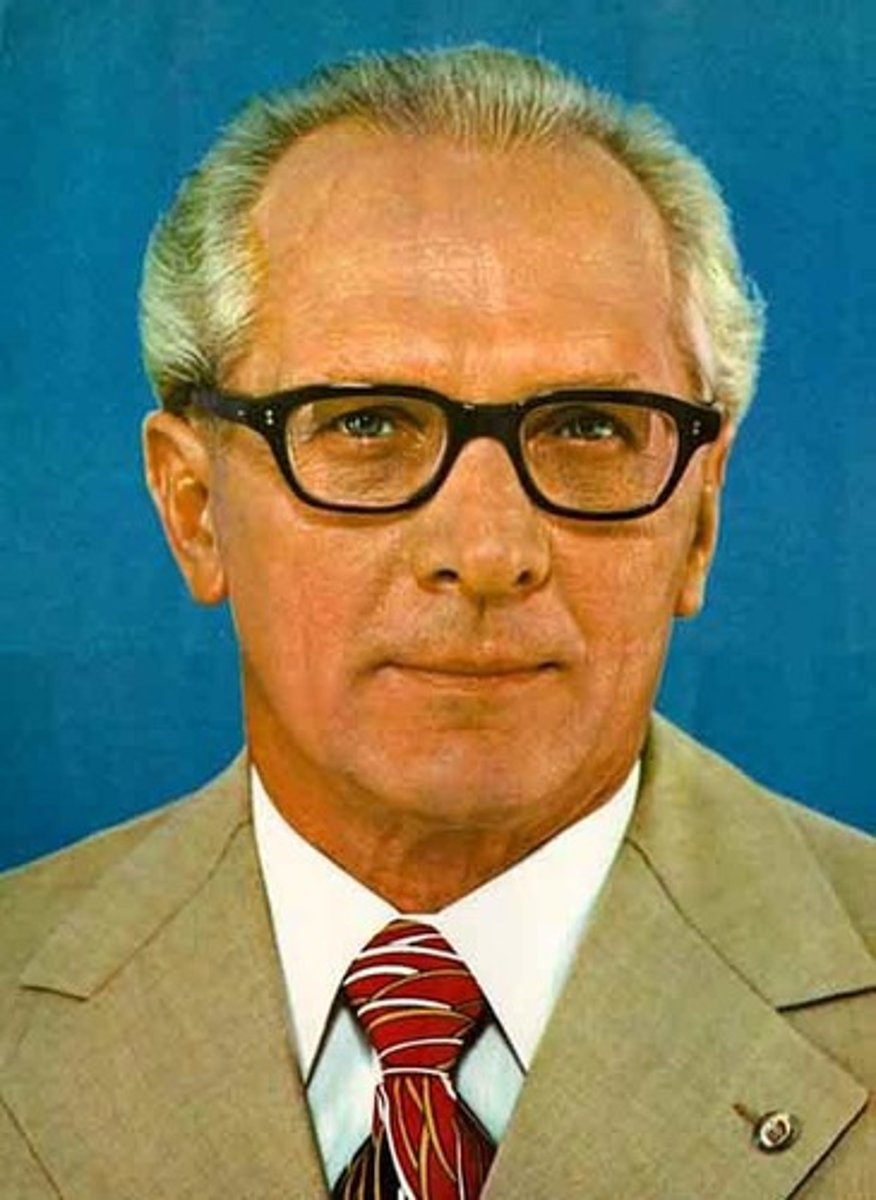
Ostpolitik
West German leader Willy Brandt's policy of "opening toward the east" that increased relations between West and East Germany in 1972
Velvet Revolution
A peaceful protest by the Czech people that led to the nonviolent end of communism in Czechoslovakia.
Civic Forum
A movement in Czechoslovakia and East
Germany in the 1980s, which sought to rebuild notions of citizenship and civic life that had been destroyed by the Soviet system; became an organizational and inspirational rallying point for opposition to Soviet domination.
Gorbachev's Kidnapping
In August 1991, hardline communists kidnapped Gorbachev and attempted to replace him with KGB members. Popular protests and military mutiny forced them to release Gorbachev after three days.
demokratizatsiya
A slogan introduced by Mikhail Gorbachev in Jan. 1987 calling for the infusion of "democratic" elements to the Soviet Union's single-party government.
Andrei Sakharov
Soviet nuclear physicist, dissident and human rights activist. Sakharov was an advocate of civil liberties and reforms in the Soviet Union after being released from prison in 1986.
